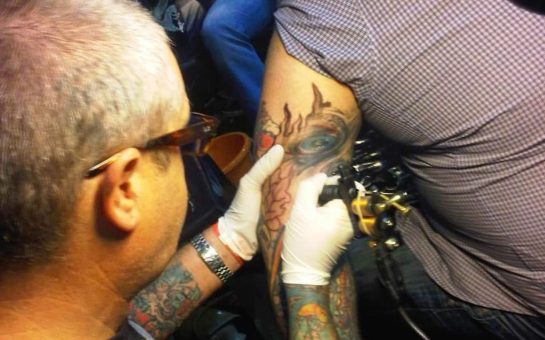Owning a dog can bring great joy and happiness but what many forget is that it also brings lifelong responsibility – after all as the famous saying goes ‘a dog is for life not just for Christmas’.
But it is not just at Christmas that dog owners negate their responsibilities, in fact dogs are abandoned all over the country every day.
Each year more than 100,000 dogs are abandoned or lost in the UK at a cost of £57million to the taxpayer and welfare charities.
The sheer number of dogs that are being found all over Greater Manchester is putting a huge strain on local councils.
The Stray Dogs Survey by Dogs Trust estimated that there were 16,558 strays across 35 local authorities in the North West in 2012 – the second highest of any region behind the Midlands.
Mark Widdup, Director of Economy and Environment at Rochdale Borough Council, said: “Residents expect the council to deal with stray dogs and the number collected by the Dog Warden Service demonstrates a continuing need for the service.”
He added that their dog warden service is funded by the Public Protection Service within the council’s Economy and Environment department.
Between April 1 last year and March 31 this year Rochdale Borough Council invested a total of £60,289 on the service.
During this period the dog warden service seized 428 stray dogs, with just 134 of these being immediately reunited with their owners.
Bolton Council revealed that during the same time period they collected 711 stray dogs which were sent to Bolton Animal Shelter and Leigh Cats and Dog Home.
While Manchester City Council said that they collected 1,364 strays during 2012/13.
Rochdale outsources the service to private company – Animal Wardens Ltd – they collect any stray dogs found to be roaming around Rochdale on behalf of the council.
All strays are scanned for a microchip and the owner is contacted – providing their details are up to date, wherever possible dogs are always returned to their owner.
However, if the owner is not known dogs are instead taken to Manchester Dogs Home, where they are kept on behalf of the council.
Many people are unaware that under the Clean Neighbourhoods and Environment Act 2005, when a dog is picked up as a stray, local authorities are only obliged to keep the dog for seven days.
If dogs are unclaimed after this time, and no suitable safe place can be found such as with a welfare charity, they are often destroyed – regardless of their health or age.
Stray Dogs Survey 2012 found that in that year 8% of stray dogs in the North West of England were put to sleep totalling 1,486 dogs.
The Dogs Trust survey also showed that only the Ulster region destroyed more stray dogs than the North West – 1593 of strays (17%) were put to sleep in 2012.
While only 70 out of 5,181 strays (1%) found in the West Country and 32 out of 1,292 strays (2%) found in the Border region were destroyed.
A spokeswoman from Dogs Trust said: “The problem of stray and unwanted dogs sadly seems to be on the rise as in last year’s Stray Dog Survey revealed an 81% increase in the number of dogs collected by Local Authorities since 2008.”
She explained that dogs of all shapes and sizes come into their care but they have seen a number of worrying trends emerge.
The Trust has seen an increase in small dogs such as Chihuahuas, Pugs, Pekinese and Shih Tzus as well as wolf-like breeds such as Akitas, Huskies and Malumutes.
She said: “We think we are getting more wolf-like dogs as a result of the Twilight phenomenon.”
However, what many charities are finding is that there is an endless and constant stream of Staffordshire Bull Terriers arriving at pounds and welfare centres.
“Sadly, I think sometimes people can react to a news story they read and either adopt a specific breed because they have seen their peer with one or the opposite and abandon a dog because they fear it might one day react badly and recreate one of the many horror stories we see reported in the papers,” said the Dogs Trust spokeswoman.
One Rochdale charity that has seen this worrying trend is Rochdale Dog Rescue, a group that rescues pound dogs on ‘death row’ whose statutory seven days are up.
They save dogs by putting them in emergency kennels and say that 80% of the dogs they deal with are Staffordshire Bull Terriers.
Rochdale Dog Rescue manager Coryn Shields said: “What tends to happen is that we end up with kennels full of staffies.
“I love staffies but they are bred far too much which makes them so readily available – you can get one from anyone.”
She argued that it is not the breed to blame, but irresponsible owners who fail to train dogs or keep them under control.
It is hoped that in years to come the financial strain and burden on animal charities and local authorities will be relieved due to new Government legislation.
The Government is set to bring in compulsory micro chipping for all dogs from April 6, 2016 – which will make it easier to help reunite owners with lost or stolen pets.
Currently the Control of Dogs Order 1992 only requires dogs to wear a collar with the name and address of their owner inscribed on it or a tag or disc.
If a collar is not worn then the dog may be seized and treated as a stray dog and the owner can be prosecuted and fined.
A Manchester animal shelter volunteer, who wishes to remain anonymous, said: “The reason why the government are bringing this law in is flawed.
“It’s not going to make people better or ‘more responsible dog owners. Only training and education in relation to dog behaviour and how to care for a dog is going to do that.
“Owners should be made to go on courses before they can buy a dog.”
Image courtesy of Zebarnabe via Flickr, with thanks.
For more on this story and many others, follow Mancunian Matters on Twitter and Facebook.



